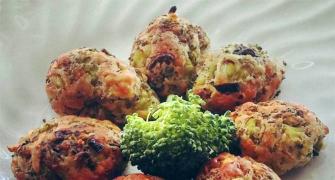Did you know that mushrooms can help you keep diabetes under check?
Maintaining blood sugar levels close to a healthy range can dramatically reduce the risk of serious complications of diabetes, such as heart disease, blindness, kidney failure, and amputations (related to diabetic neuropathy).
Natural foods and supplements with medicinal properties is a cost effective way to achieve significant health benefits by preventing or managing diabetes.
Functional foods also help increase medication effectiveness, maintain your nutritional status and prevent adverse complications.
1. Ginger, lemon, cinnamon tea

Ginger is rich in active compounds called gingerols, which increase the uptake of glucose into muscle cells and may therefore assist in the management of high blood sugar levels. It can also help to delay the onset and progression of cataract, a common complication of diabetes.
Cinnamon and other common spices such as nutmeg, basil, garlic, bay leaf, oregano and others are found to play a role in lowering blood glucose, increasing insulin sensitivity, lower blood pressure and decrease the risk of cardiovascular diseases, one complication associated with diabetes.
To achieve these benefits only a small daily dose is essential, 1 to 1.5 teaspoons.
People with type 2 diabetes (non-insulin dependent) can benefit greatly with a daily dose of ginger, cinnamon and lemon as these foods can help in long-term sugar control.
A tea can be made by boiling water with one-inch piece of ginger, strain in a cup and add 1.5 teaspoon of cinnamon and 1 teaspoon of lemon juice.
2. Mushrooms

Several types of mushrooms have been identified and used as anti-diabetic agents, some of these medical varieties include, Oyster mushroom, Reishi, Cordyceps, Shiitake, Maitake, and white button mushrooms.
Medicinal mushrooms have been valued for their potential healing properties and as remedies for various diseases since thousands of years.
Mushrooms are low in calories, high in fiber, rich in B-Vitamins, Vitamin C, minerals, anti-oxidants and they are the only source of Vitamin D among plant foods. The bioactive metabolites in mushrooms directly act on glucose metabolism and related biochemical pathways and thus lower the blood glucose levels.
Incorporation of mushrooms as a daily food or in the form of supplements (SX fraction, Ganoderma herbal capsules, Oriveda, Reishi max capsules -- marketed products with mushroom extracts) can assist in maintaining more normal cellular and immune function which will eventually help in normalizing blood glucose level.
3. Fenugreek seeds

Several studies over the past decades have proven the effectiveness of fenugreek seeds in lowering blood glucose.
Fenugreek seeds when taken with food can significantly improve glucose homeostasis in both Type 1 and Type 2 diabetes by delaying carbohydrate digestion and absorption, and enhancing insulin action. The effect seems to come from the presence of soluble fiber in seeds, which can also help in reducing blood cholesterol levels.
Soak the seeds overnight and have at least 10 to 15 grams of the soaked seeds 15 minutes before lunch and dinner or alternatively you can use 2 teaspoon of powdered seeds, soak it overnight in a glass of water, strain and drink this water on an empty stomach. You can also use the seeds as spice in curries and lentils or alternatively add powdered seeds to the chapati dough.
4. Water

The first warning sign of diabetic hyperglycemia or high blood sugar is thirst sensation.
The kidneys regulate the blood glucose by excreting it in urine and that is why you need more fluids to throw away the extra sugars. Water is the best way to quench that thirst and bring down the sugar levels.
Maintaining hydration is very important for diabetics because even a small decrease in the hydration level can cause serious health problems. In older diabetics, the thirst sensation may go down, therefore it is important to keep sipping water at regular intervals, especially after exercising and during hot weather.
Do not drink fruit juices, fizzy sugary drinks and beverages as they are high in calories and sugar. Use sports drink only if you suffer from hypoglycemia after a workout.
Skimmed milk, low-fat milk, buttermilk and herbal teas are good options for a healthy beverage.
Drink at least 8 to 10 glasses of clean water daily.
5. Multivitamin and mineral supplements

Most of the people with Type 2 diabetes suffer from deficiencies of Vitamin B-12, B-6, B-3, Vitamin D, folic acid, and mineral such as magnesium, zinc and calcium.
Restoring deficiencies can help in alleviating symptoms of associated disorders, such as Vitamin B-12 can reduce symptoms of nerve damage caused by diabetes.
Please consult your doctor on the appropriate use and doses, before starting any supplements.
6. Reduce total calorie intake

One of the most important factors in diabetes management is diet because it is the amount and kind of food that affects blood sugar the most.
Reduction in total calorie intake is of utmost importance for Diabetics who are overweight or obese. This will help them lose weight and eventually give a better control over their blood sugar by improving insulin sensitivity (body’s insulin works better).
One simple trick to reduce calories is by taking small frequent meals at a gap of 2 to 3 hours and decrease portion size, for example if you eat 3 to 4 chapatis at one time then reduce it to 1 to 2, at one meal and include more vegetables, salads and or soup.
7. Say not to refined foods

Avoid all forms of refined foods such as white bread, maida products, cookies, biscuits, and bakery goods.
These foods lack fibre and have poor nutritional quality, besides these foods can cause a dramatic rise in your blood sugar levels.
Use whole meal bread or multi-grain flour, oats, barley, brown rice and fibre rich foods as far as possible.
8. Exercise

Regular physical activity has many beneficial effects -- lowers blood sugar, improves circulation, helps to reduce body fat, build muscle tone and preserve bone mass (which is essential for strong bones at older age).
Exercise can also help to prevent long term complications of diabetes, especially heart problems.
Diabetics should aim for 30 to 60 minutes of aerobic exercise -- walking, jogging or running, and cycling -- 4 to 7 days of the week.
Whether you are attempting to prevent or control diabetes, the most imperative step towards achieving well-being is to get physically fit.
This does not mean you have to lose all those extra pounds; a loss of 5 percent to 7 percent of your aggregate weight can also bring down your sugar and cholesterol level impressively.
Staying fit and eating healthy can also have a positive impact on your state of mind and vitality levels.
Shweta Singh is a dietitian. She holds a doctor of medicine in alternative medicine, with a specialisation in vitamin therapy, yoga and magnet therapy. She holds a certificate in Clinical Trial Management from the NUS, Singapore.
Also read: Beware! There are hidden calories in your food









